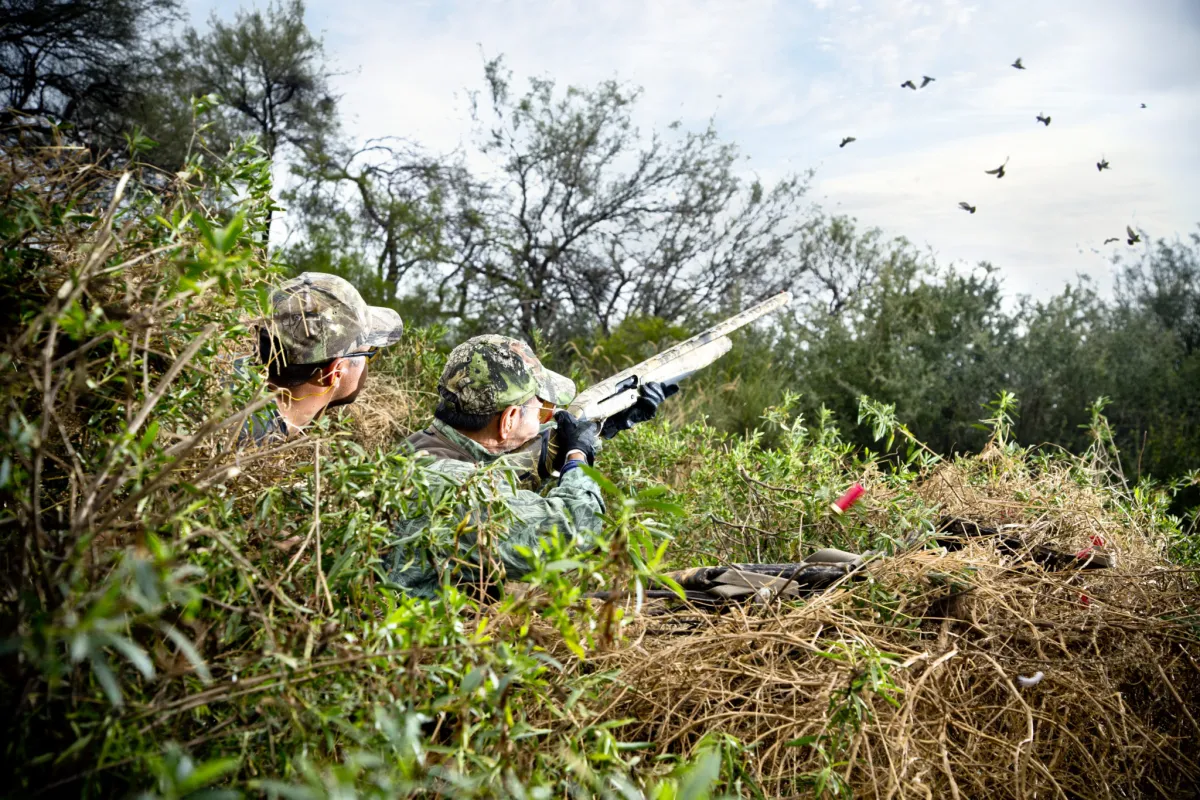Understanding Dove Behavior
Before heading out to the field, it’s important to understand the behavior of doves. Doves are migratory birds, meaning their presence in a particular area can vary throughout the hunting season. They prefer open fields and agricultural areas where they can easily find food such as seeds and grains. Doves are most active during the early morning and late afternoon, making these the best times to hunt.
Dove hunting often requires patience and sharpshooting skills. These birds are known for their quick and erratic flight patterns, which can make them challenging targets. Understanding their behavior, such as their feeding patterns and flight paths, can give you an edge in the field.
Essential Gear for Dove Hunting
When it comes to dove hunting, having the right gear is crucial. Here’s a list of essentials that every beginner should have:
- Shotgun: A 12-gauge or 20-gauge shotgun is ideal for dove hunting. These shotguns offer a good balance of power and control, making it easier to hit these small, fast-moving targets.
- Ammunition: Use light loads with size 7.5 or 8 shots. These are effective for bringing down doves without causing too much damage to the meat.
- Clothing: Wear camouflaged clothing to blend in with your surroundings. Doves have sharp eyesight, so it’s important to stay as concealed as possible.
- Hunting Vest: A vest with large pockets is useful for carrying ammunition and harvested doves.
- Decoys: While not absolutely necessary, dove decoys can help attract birds to your location by simulating a feeding area.
Scouting Your Hunting Area
Scouting is a critical step in dove hunting that many beginners overlook. Before the season starts, spend some time visiting potential hunting spots. Look for areas with plenty of food sources, such as sunflower fields, wheat stubble, or cornfields. Water sources, like ponds or small lakes, are also attractive to doves, especially during the heat of the day.
While scouting, pay attention to the flight paths of doves. Identify where they enter and exit the field, as this will help you choose the best spot to set up. Additionally, check for any local regulations regarding hunting areas and seasons to ensure you’re in compliance with the law.
Setting Up for Success
Once you’ve scouted your location and identified a good spot, it’s time to set up for your hunt. Arrive early, preferably before dawn, to ensure you have plenty of time to get into position. Find a spot with good cover, such as a tree line or tall grass, where you can remain hidden while still having a clear view of the sky.
Position your decoys in a way that mimics a feeding or resting flock. Doves are social birds, and the sight of other doves can encourage them to land in your area. Place your decoys about 20-30 yards from your position, as this is typically the effective range for most shotguns.
Perfecting Your Shooting Technique
Dove hunting requires quick reflexes and accurate shooting. Since doves are small and fast, it can be challenging to hit them, especially for beginners. Here are some tips to improve your shooting skills:
- Lead Your Target: Doves fly quickly, so you’ll need to aim slightly ahead of them to account for their speed. Practice leading your target to improve your accuracy.
- Mounting the Shotgun: Properly mounting your shotgun is crucial for a good shot. Bring the shotgun to your shoulder smoothly and align your eye with the barrel for a clear sight picture.
- Follow Through: After pulling the trigger, continue to follow the bird with your shotgun. This follow-through motion helps maintain accuracy and increases the chances of a successful hit.
Staying Safe in the Field
Safety should always be your top priority when hunting. Here are some key safety tips to keep in mind:
- Identify Your Target: Always be sure of your target and what lies beyond it before pulling the trigger. This helps prevent accidents and ensures that you’re only shooting at doves.
- Be Aware of Other Hunters: If you’re hunting with others, maintain clear communication and be aware of each other’s positions at all times. This reduces the risk of accidental shootings.
- Wear Protective Gear: In addition to camouflaged clothing, consider wearing ear and eye protection to guard against the loud noise of gunfire and any flying debris.
Incorporating Dove Hunting Tips.
Learning from experienced hunters can greatly improve your success in the field. One source of valuable advice is the Dove hunting tips by John Hardy. John Hardy, a seasoned hunter with years of experience, offers practical tips that can help beginners avoid common mistakes. For instance, Hardy emphasizes the importance of patience and observation, advising hunters to take their time and wait for the right moment to take a shot, rather than firing hastily. Incorporating such expert tips into your hunting routine can make a significant difference in your effectiveness and enjoyment of the sport.
Post-Hunt
After a successful hunt, it’s time to clean and prepare your doves. Field dressing doves is relatively simple and can be done in the field. Remove the feathers and gut the bird, taking care to preserve as much meat as possible. Once cleaned, doves can be cooked in various ways, with grilling being a popular option. Dove meat is tender and flavorful, making it a rewarding end to your hunting experience.
Summary
Dove hunting is a great way for beginners to get started in the world of hunting. By understanding dove behavior, using the right gear, scouting your area, setting up properly, perfecting your shooting technique, and following safety guidelines, you’ll be well on your way to a successful hunt. Remember to incorporate tips from experienced hunters like John Hardy to enhance your skills and make the most of your time in the field. Happy hunting!
